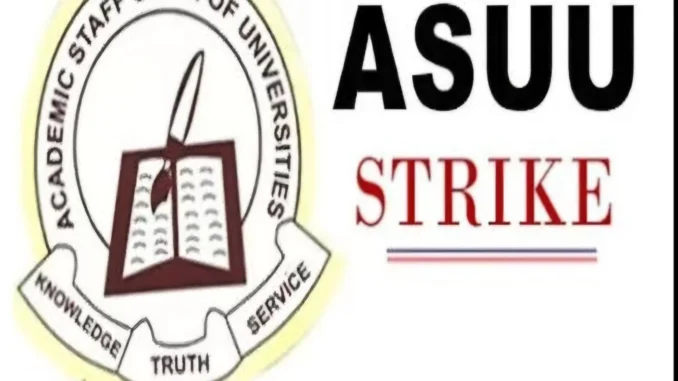
The Academic Staff Union of Universities (ASUU) has officially declared a two-week total and comprehensive warning strike across all public universities in Nigeria, accusing the Federal Government (FG) of breaching long-standing agreements and failing to honour key commitments made to the union.
Speaking during a solemn press briefing held on Sunday at the University of Abuja, the ASUU National President, Prof. Chris Piwuna, announced that the strike would commence from midnight, Monday, October 13, 2025, following the expiration of the 14-day ultimatum earlier issued on September 28, 2025.
“Compatriots of the press, it goes without saying that there is nothing sufficient on the ground to stop the implementation of the ASUU-NEC’s resolution,”
Prof. Chris Piwuna, ASUU President
According to him, all ASUU branches nationwide have been instructed to withdraw their services immediately, signalling yet another round of industrial unrest within the nation’s tertiary education system.
Frustrations Over Broken Promises
The latest strike action stems from years of unfulfilled government promises, poor funding, and neglect of public universities.
Prof. Piwuna stated that despite numerous meetings with government officials, “nothing significant has changed”, and lecturers can no longer continue under worsening conditions.
ASUU’s key demands include:
- Full implementation of the 2009 FGN-ASUU Agreement
- Payment of withheld salaries and promotion arrears
- Revitalisation funding for public universities
- An end to the victimisation of ASUU members at LASU, KSU, and FUTO
The union described the government’s latest proposals as “provocative and inconsistent,” warning that this two-week warning strike could escalate into an indefinite strike if the government fails to act decisively.
Federal Government’s Response
Meanwhile, the Minister of Education, Dr. Tunji Alausa, disclosed that the Tinubu-led administration had released ₦50 billion for Earned Academic Allowances (EAA) and earmarked ₦150 billion in the 2025 budget for university infrastructure and staff welfare.
He maintained that the government remains committed to resolving the lingering crisis, but ASUU insists that the actions taken so far are “cosmetic and lack urgency.”
If the standoff persists, academic activities across Nigerian public universities could once again be brought to a halt, disrupting the academic calendar and leaving thousands of students stranded.
What This Means for Students and Parents
Students and parents across the country have expressed frustration over the looming shutdown. Many fear that another prolonged strike could derail academic progress and increase the uncertainty that has plagued Nigeria’s education system for years.
Education analysts have called for sincere dialogue between the Federal Government and ASUU to prevent another total collapse of academic activities nationwide.
Leave a Reply